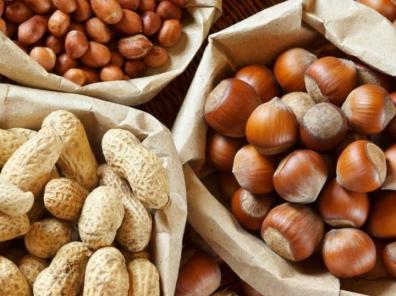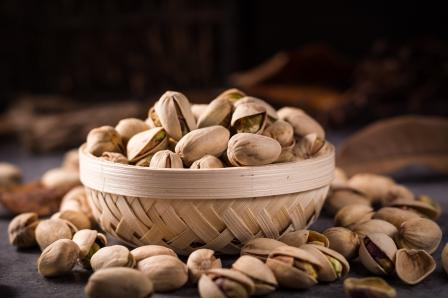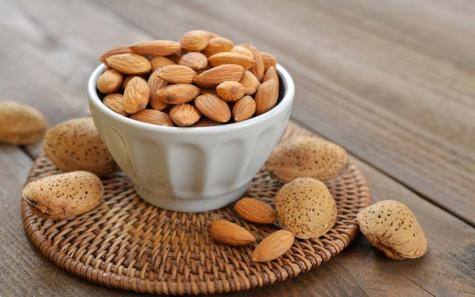In the realm of nutrition, there are often myths and misconceptions surrounding certain foods and their impact on health. One such topic of interest is the relationship between roasted peanuts and cholesterol levels. Are roasted peanuts good or bad for cholesterol? In this comprehensive guide, we delve into the science behind roasted peanuts, their effects on cholesterol, and how they can fit into a balanced diet. **Understanding Cholesterol: The Good, The Bad, and The Ugly** Before we dive into the specifics of roasted peanuts and cholesterol, let’s first understand what cholesterol is and its role in the body. Cholesterol is a waxy, fat-like substance that is found in the cells of the body and is essential for the production of hormones, vitamin D, and bile acids that help in the digestion of fats. Cholesterol is categorized into two main types: low-density lipoprotein (LDL) cholesterol, often referred to as “bad” cholesterol, and high-density lipoprotein (HDL) cholesterol, known as “good” cholesterol. LDL cholesterol can contribute to plaque buildup in the arteries, leading to atherosclerosis and an increased risk of heart disease. On the other hand, HDL cholesterol helps remove LDL cholesterol from the arteries, reducing the risk of heart disease. *Roasted Peanuts: A Nutritional Powerhouse* Roasted peanuts, a popular snack enjoyed by many, are packed with essential nutrients that offer a myriad of health benefits. They are an excellent source of protein, healthy fats, fiber, vitamins, and minerals.
.
Peanuts contain monounsaturated and polyunsaturated fats, which are known to have a positive impact on heart health by lowering LDL cholesterol levels when consumed in moderation. Additionally, peanuts are rich in antioxidants such as resveratrol, vitamin E, and other phenolic compounds that help combat inflammation and oxidative stress in the body. These antioxidant properties play a crucial role in reducing the risk of chronic diseases like heart disease, diabetes, and certain types of cancer. *The Link Between Roasted Peanuts and Cholesterol Levels* Now, let’s address the burning question: Do roasted peanuts have an impact on cholesterol levels? The answer lies in the type of fats present in peanuts. As mentioned earlier, peanuts contain predominantly unsaturated fats, which have been shown to improve cholesterol levels when substituted for saturated fats in the diet. Several studies have demonstrated that including peanuts or peanut butter in a balanced diet can lead to a reduction in LDL cholesterol levels without affecting HDL cholesterol levels. The monounsaturated and polyunsaturated fats in peanuts help lower LDL cholesterol and triglyceride levels, thereby reducing the risk of heart disease.
..
It is essential to note that while peanuts can be beneficial for cholesterol levels, moderation is key. Roasted peanuts are calorie-dense, so consuming them in excess can lead to weight gain, which in turn can have a negative impact on cholesterol levels. Opt for unsalted or lightly salted roasted peanuts to avoid excess sodium intake, which can affect blood pressure levels. *Incorporating Roasted Peanuts Into a Heart-Healthy Diet* If you’re looking to incorporate roasted peanuts into your diet to support heart health and manage cholesterol levels, here are some tips to do so effectively: 1. **Portion Control**: Enjoy roasted peanuts in moderation as part of a balanced diet. Stick to recommended serving sizes to avoid consuming excess calories. 2. **Choose Wisely**: Opt for roasted peanuts without added sugars or excessive salt. Look for plain, unsalted varieties to keep sodium intake in check. 3. **Pair with Whole Foods**: Include roasted peanuts as part of a snack that combines protein, healthy fats, and fiber, such as pairing them with a piece of fruit or whole grain crackers. 4. **Experiment with Recipes**: Get creative with how you incorporate roasted peanuts into your meals. Add them to salads, stir-fries, or homemade trail mixes for added flavor and crunch.
…
5. **Seek Variety**: While roasted peanuts are a nutritious choice, it’s essential to diversify your nut consumption. Incorporate a variety of nuts and seeds like almonds, walnuts, and chia seeds to benefit from a spectrum of nutrients. *Conclusion: Embracing Roasted Peanuts for Heart Health* In conclusion, roasted peanuts can be a valuable addition to a heart-healthy diet when consumed in moderation. Their nutrient-dense profile, rich in unsaturated fats, fiber, and antioxidants, makes them a beneficial snack choice for supporting cholesterol levels and overall well-being. By understanding the science behind roasted peanuts and cholesterol and adopting smart eating habits, you can harness the nutritional benefits of this humble nut to promote heart health and reduce the risk of cardiovascular disease. Remember, balance is key, so enjoy roasted peanuts as part of a diverse and wholesome diet to reap the rewards of this nutritious powerhouse. **Addressing Common Misconceptions About Roasted Peanuts and Cholesterol** Despite the evidence supporting the positive impact of roasted peanuts on cholesterol levels, there are still lingering misconceptions surrounding this topic.




Your comment submitted.